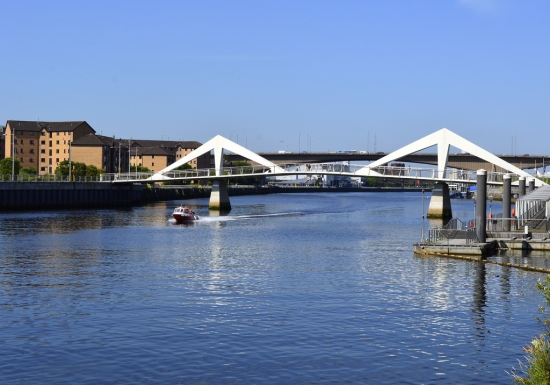Less than three months after it received more than £8m in extra funding, the Clyde Gateway agency — Scotland’s biggest and most ambitious regeneration programme — has written off £45m from its property assets.

In November the agency, which has already received more than £200m from the Scottish Government, was handed an extra £8m to protect its core projects until April, 2016. Almost £6m of that money will go toward the construction of offices at the Rutherglen low carbon zone at Farme Cross with another half-million used to upgrade an historic building in Landressy Street, Bridgeton, used as the home of Glasgow’s Women’s Library.
At the time, Neil MacDonald the chair of Clyde Gateway, said the injection of cash would provide the agency “with the long term security and greater certainty that developers and investors are looking for in what remains very difficult and testing economic conditions”.
Yet within weeks Clyde Gateway’s latest accounts showed that assets valued at £59m in April, 2012, were written down by £36m during 2012-13, adding to a historic £9m write down and slashing more than 75 per cent from its book value.
After new investments last year, the agency’s net book value is shown as £26m, almost halving the £51m value of the previous year end. And Clyde Gateway Developments made a £2.1m loss for the year, almost double the £1.1m loss in 2011-12.
Commenting on the substantial write downs an agency spokesman said: “We are given grant funding to assemble land for regeneration purposes and we have to pay the market value for those purchases.”
Citing a project at Bridgeton, he explained that 20 empty properties had been acquired to create the city centre Red Tree Business Suites of which 50 per cent were now occupied. Around £3.6m had been invested in development, but a revaluation produced a value “substantially less than what we paid to get ownership”.
An opposite example was at Shawfield, where Clyde Gateway is creating a “national business district” on a former industrial site, there had been clearance and compensation costs. “As the site is redeveloped and companies relocate, the asset will increase in value,” the spokesman added.
The accounts show assets acquired for development were devalued from £21m in April, 2012, to £10m a year later, after impairment provisions of £14m. Impairment provisions for assets under construction were lifted from £7m to £20m during the year, while investment property impairments rose from £1.5m to £11m.
The increase in impairments reflected an increase in activity, with projects reaching the stage where they could be properly evaluated. These included Shawfield, the Rutherglen low carbon zone, the former power station site at Dalmarnock, and the former Olympia theatre redevelopment.
Established in 2007 to undertake regeneration projects ahead of the 2014 Commonwealth Games, Clyde Gateway is backed by Scottish Enterprise, Glasgow City Council and South Lanarkshire Council. Although it has received cash injections from the Regeneration Capital Grant Fund, the majority of its finances are provided by the Scottish Government.
Previous Post
Intu sets its sights on two more Shopping Centres